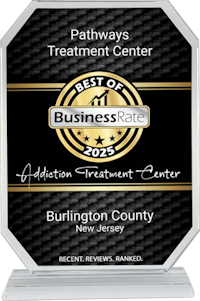Binge drinking is a major issue, something that is far too common among young adults and those in college. While for many, binge drinking is something that is only done in social settings and doesn’t evolve into something more severe, for others, binge drinking is the beginning of what ultimately becomes a more significant drinking problem, including alcohol use disorder (AUD).
Knowing what binge drinking is and the effects it can have on the body and brain can go a long way in curtailing or preventing binge drinking. Furthermore, knowing the signs of binge drinking can help someone suffering get the help they need before their drinking problem spirals even more out of control.
Definition of Binge Drinking
The National Institute on Alcohol Abuse and Alcoholism defines binge drinking as consuming a large amount of alcohol in a short period, typically leading to a blood alcohol concentration (BAC) of 0.08% or higher. For men, this means five or more drinks in a two-hour span. For women, this means four or more drinks in that same two-hour span.
While binge drinking often starts out as a harmless social activity, it can devolve into something much worse resulting in serious mental and physical health challenges.
Reasons For Binge Drinking
People often engage in binge drinking for a number of different reasons. Some of the most common reasons include:
- Social Pressure: Many people drink excessively in social settings to fit in with peers or feel more relaxed. This cause tends to be the most common, especially among college students and young adults.
- Stress Relief: Alcohol is often used as a way to cope with stress, anxiety, or personal problems.
- Low Self-Esteem: Some individuals drink excessively to feel more confident in social situations.
- Boredom: A lack of fulfilling activities or hobbies may lead to drinking as a way to pass the time.
- Habit and Routine: Frequent exposure to environments where binge drinking is normalized can make it a routine behavior.
- Underlying Mental Health Issues: Conditions such as clinical depression and anxiety disorders can contribute to excessive drinking as a form of self-medication.
- Genetic and Biological Factors: Some individuals may be more predisposed to heavy drinking due to genetic makeup, or a family history of alcohol use disorder.
- Cultural and Media Influence: Popular culture, movies, and advertisements often glamorize heavy drinking, making it seem normal or even desirable.
- Celebratory Occasions: Holidays, parties, and events often involve excessive drinking, reinforcing the habit over time.
Short and Long-Term Effects of Binge Drinking
As we touched on earlier, binge drinking doesn’t just come with short-term effects but also long-term consequences. These can have a negative impact on a person’s mental and physical health.
Short-Term Effects
The short-term effects of binge drinking are similar to those associated with drinking alcohol in excess in general such as:
- Impaired judgment and decision-making
- Increased risk of accidents and injuries
- Memory loss and blackouts
- Hangovers and dehydration
- Alcohol poisoning, which can be life-threatening
- Increased risk of violence or unsafe sexual behavior
- Diminished coordination and motor skills
- Nausea and vomiting
- Increased impulsivity
- Disruptions in sleep patterns
- Elevated blood pressure and heart rate
Long-Term Effects
The effects of binge drinking over time can be even more severe and come with significant health problems, such as:
- Liver disease and liver failure
- Increased risk of cardiovascular disease
- Brain damage and cognitive impairments
- Higher likelihood of developing an alcohol use disorder
- Relationship and career problems
- Higher risk of developing certain cancers, including liver, breast, and throat cancer
- Damage to the gastrointestinal system, leading to ulcers and digestive issues
- Weakened immune system, making the body more susceptible to illness
- Increased likelihood of financial problems due to alcohol-related spending
- Legal issues, such as DUIs or public intoxication charges
How to Stop Binge Drinking?
If someone is binge drinking regularly, it can be difficult to cut back on the amount they drink or stop drinking altogether on their own. If you or someone you know is suffering from binge drinking and looking to regain control of their drinking habits, consider the following:
If you are someone who drinks heavily and is looking to quit entirely, do not stop cold turkey abruptly. While this may sound counterproductive to your goal of quitting, it’s for good reason. Quitting suddenly can not only be difficult, but also dangerous. This is due to the shock it can put on the body and the withdrawal symptoms that may come as a result.
Instead, consider slowly reducing the amount of alcohol you consume over time until you have stopped completely, otherwise known as tapering down. When tapering, set realistic goals, such as limiting yourself to fewer drinks per occasion and spacing them out over a longer period. Keeping a journal of your drinking habits can help with tracking progress and identifying patterns that need to be changed.
If you are struggling to get your drinking under control, it’s okay to ask for help. You can seek help from friends or family members. If you aren’t comfortable talking to them, you can seek help from a professional such as a therapist or counselor. It’s possible to get support from a treatment-themed group such as Alcoholics Anonymous (AA).
By having someone or multiple people help you with your drinking, you can receive encouragement, be held accountable, and have people on hand to help you navigate challenging situations where alcohol is present.
One of the biggest triggers for a person who is trying to cut down or stop their drinking is to be in situations where alcohol is present and easily available. To prevent yourself from falling back into old habits, plan out alternatives such as drinking non-alcoholic drinks at social events. YOu can also plan to engage in activities that don’t involve alcohol or where alcohol isn’t (or cannot be) present.
If you are still struggling to get your drinking under control on your own, you may want to consider entering into a medical detox program. Undergoing a medically-assisted detox allows your body to rid itself of alcohol safely under the care and supervision of trained medical professionals. They can administer special medications that can help alleviate or even treat some of the withdrawal symptoms associated with the detox process.
Medical detox can be done at a local medical facility, a dedicated detox center, or a treatment center that also offers detox services.
Alcohol can be used as a form of self-medication, whether it’s coping with stress or anxiety or dealing with an underlying mental health condition. If you are someone who regularly turns to alcohol in this manner, consider healthier ways to manage these issues. This could include exercise, meditation, yoga, journaling, or therapy. A professional therapist or addiction specialist can help you come up with ideas for alternate coping mechanisms.
If your relationship with alcohol has reached a point where it is becoming a serious problem to the point where it is negatively impacting your health, relationships, or daily life, it may be time to seek professional treatment. Pathways Treatment Center in Burlington, New Jersey offers personalized treatment plans to help overcome binge drinking and alcohol use disorder so that you can build a healthier future.

Signs of Alcohol Addiction
While it’s important to note that binge drinking doesn’t automatically lead to the development of an alcohol addiction, it is often a precursor to addiction or a similarly larger issue.
With that in mind, here are some signs to be on the lookout for that may indicate an alcohol addiction:
- Drinking more than intended or an inability to control drinking
- Frequent blackouts or memory loss
- Neglecting responsibilities due to drinking
- Developing a high tolerance, and needing more alcohol to feel the same effects
- Experiencing withdrawal symptoms, such as anxiety, shaky hands, or nausea when not drinking
- Continuing to drink despite negative consequences
- Lying about or hiding drinking habits
- Feeling guilt or shame about drinking
- Using alcohol as the primary way to handle emotions or stress
- Repeatedly trying to reduce drinking, but failing
- Loss of interest in activities that once brought joy
- Declining performance at work or school due to drinking habits
Learn More About How To Stop Binge Drinking at Pathways Treatment Center
If you’re struggling with binge drinking, professional help can make all the difference. Pathways Treatment Center in Burlington, New Jersey, offers a range of treatment programs designed to support individuals on their journey to recovery. From therapy to long-term support options like sober living, our team is here to help you take control of your life.
Recovery is possible, and with the right support, you can regain control of your life. Contact us today to learn more about how we can support you in achieving sobriety and lasting wellness.



